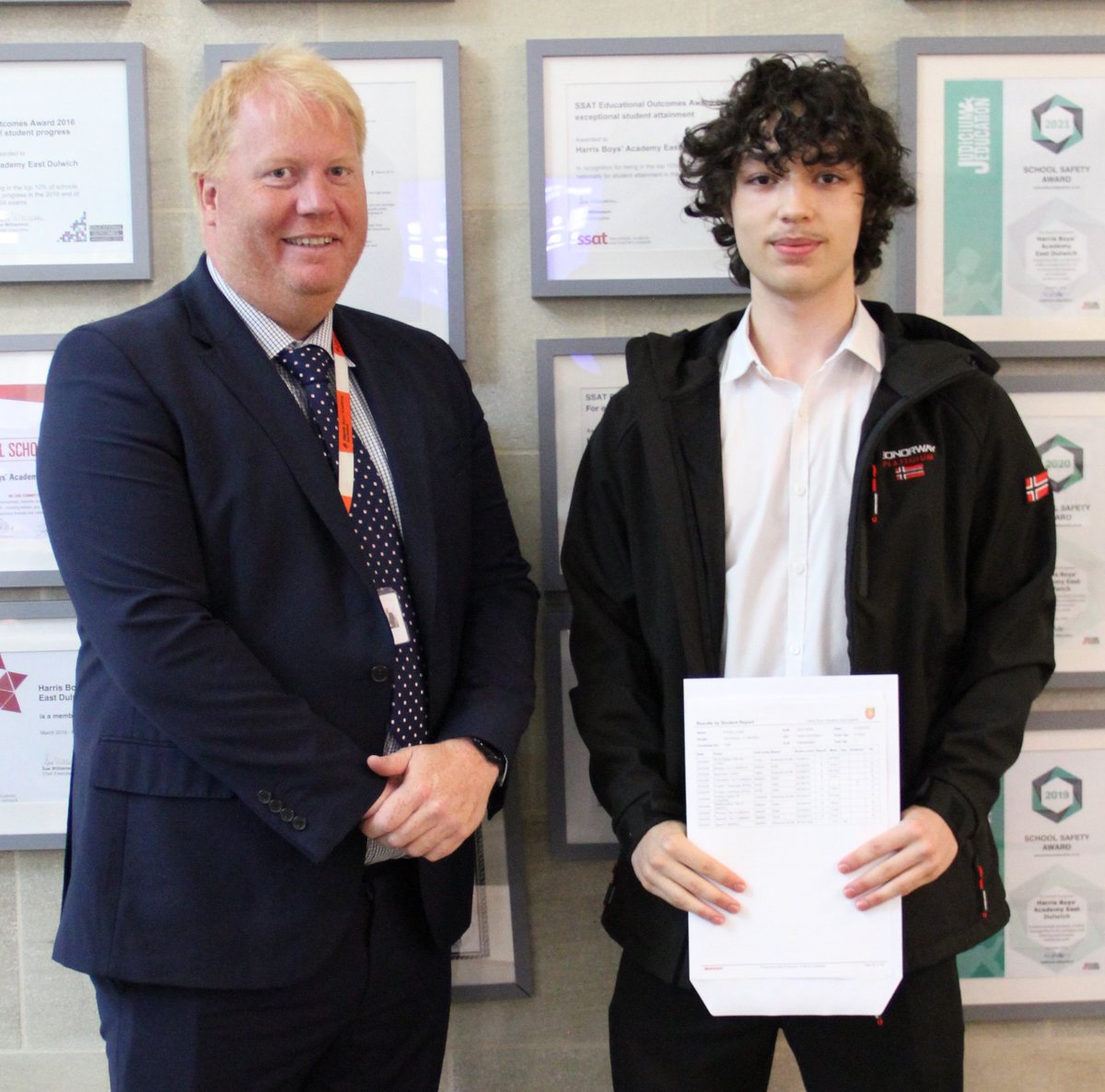
Assessment
All students in the academy are assessed regularly, with a formal assessment twice a year.
These tests aim to develop students' exam technique and enable them to demonstrate depth of knowledge, critical thought and, for many subjects, their practical skills. Most importantly, they are used to help gauge progress and to take action to improve your son’s learning and progress.
In order to keep you informed about your son’s/ward's progress, we will report back to you at two points during the academic year – one mid-year report and one end-of-year report. These reports will summarise the academic (based on assessments) and non-academic progress your son has made.
Assessment schedule
Each year we have an assessment schedule for all year groups. Our formal assessments and internal learning opportunities are planned in an and staggered throughout the year. There are two formal assessment period for each year group from 7 to 11.
Click HERE to see HBAED’s assessment schedule for 2024-25. Note that some of information on this schedule may change. If you have any further questions then please contact Mr Pugh at m.pugh@harrisdulwichboys.org.uk.
What a report looks like
The report has a number of main components:
(a) The first is an Attitude to Learning score your son has achieved, rated then averaged on a scale of 1-4 with 4 being ‘outstanding’ and 1 being ‘cause for concern.’
(b) The second is the Presentation score which reflects the work in books or other media. Note that students with difficulties in presenting work may not be given a score in this area. Again, this is rated then averaged on a scale of 1-4 with 4 being ‘outstanding’ and 1 being ‘cause for concern.’
(c) The third element is ‘Home Learning and Revision’ section, that again provides a summary averaged on a scale of 1-4 with 4 being ‘outstanding’ and 1 being ‘cause for concern.’
(d) The fourth element is a summary of behaviour points where the rewards and sanctions your son has received and the boundary that they are within are noted.
(f) The fifth element is your son’s academic progress. This is presented as a test % which converts into an Assessment Most Likely Grade (AMLG) which is based purely on the test % (NOTE: the grade boundaries will vary from subject to subject and from one assessment to the next dependent on the course). A Teacher Most Likely Grade (TMLG) is then given, which is a professional judgement on the trajectory your student in heading to at the end of KS4.
This is then compared to their target grade (which is formulated from their KS2 level – and the expectation that they will make one grade progress above the national average) and the minimum attainment baseline which stems from the data published by the Department for Education (DfE) for the pupils to make the average (or average expected) progress. On reports, pupils have a progress status that is made against the DfE data.
If their progress status is above 0, that means they are making progress above what would be expected, which is good. If their progress status is +0.29 and above, their progress is much higher than the national average which is outstanding. The grades for these students on their courses will be presented as letters and/or numbers dependent upon their year group and course due to them taking the ‘new’ GCSEs. There will also be pass, merit and distinction grades for our approved vocational courses.
(g) The final element is a teacher comment which will provide a comment on successes and how to improve. Each student will receive at least one comment from each subject once per academic year.
What grade should my son be achieving?
The minimum expected grade is complicated as it is based on the actual marks in KS2 tests (or CATs tests for pupils who did not sit KS2 test) rather than the levels. Our target grades are based on the latest DfE tables, with the target being formulated by our expectation that pupils can achieve one grade higher than the national average.
Your son’s target grade reflects our expectation that they can meet or exceed at least a grade higher than the national average. Results from previous years show that the majority of HBAED pupils far exceed the national expectations and so these targets are aspirational but realistic.
As the tests are designed to cover material that has been taught, we would expect pupils to be able to achieve their target grade at each assessment point. Therefore, maintaining their target grade in a following assessment point would demonstrate that they have made progress because they will have achieved that grade having been tested on a greater quantity of topics. Exceeding their target grade would be exceptional as it would show that they are achieving well beyond expectations.
What happens after the assessments have taken place?
After the assessments have taken place, teachers will review progress in teams and with pupils. Teachers will share the grades as well as strengths and areas to improve with pupils. We expect all pupils to take time to reflect on their progress and to ensure they take the actions needed to improve.
At HBAED, we have a fluid banding (setting) cycle which works in tandem with the assessment cycle. After the assessment point, teachers sit down with Directors in English, Mathematics and Science and review the current ability bands pupils are in. They use the assessment data but will also discuss classwork and homework in making decisions about any banding changes. The curriculum has been designed so that the blocks for English, Maths and Science are independent of one another. We understand that learning is not linear and this system allows for pupils to change the band they are in 2-3 times a year and for different subjects. The aim of this is to ensure the pace of the lesson best suits their learning needs and it maximises the chances of them achieving excellent grades by the end of Year 11.
Our assessment and grading systems explained
Due to curriculum changes and exam specification changes, we are frequently adapting our assessments to best fit a student’s learning. We are fortunate to rely on a huge professional team at Harris Federation, and we worked with them closely to develop and analyse assessments.
Some assessments will have been produced by Harris Federation. These are created by specialist consultants from the Harris Federation and will be unseen by teachers at our academy. Pupils work on a scheme of work that has been specially adapted for the year group and develops the knowledge and skills over time to best prepare them for their terminal assessments in Year 11. The % scores for each externally-set exam are then standardised and grade boundaries created for each % based on a model which has been developed in consultation with exam boards. This means the grade is an accurate prediction of what the pupil is likely to achieve as the model distributes grades against a national model.
In other cases, Directors will be creating Bespoke Assessments for HBAED. In these cases assessments are verified by the senior leadership team in a quality assurance process. The grade boundaries for these may be also based on national grade boundaries (as in years 10 and 11).
Defining low, middle and high attainers
Key Stage 4 Performance Tables
Definitions are based on the Key Stage 2 test results attained by pupils on completion of the primary school phase:
- Low attaining = those below Level 4 in the KS2 tests
- Middle attaining = those at Level 4 in the KS2 tests
- High attaining = those above Level 4 in the KS2 tests
Key Stage 2 results used to calculate prior attainment
From 2017 onwards, reading and mathematics test results only will be used in calculating Key Stage 2 prior attainment fine levels for use in Progress 8. Of course, years where Covid affected data gathering meant that KS2 testing did not happen. In these cases, we used internal testing and CATs testing to create valid starting points for students that we have checked against their performance since arriving at HBAED.
For the Key Stage 4 tables, where we are looking at Key Stage 2 prior attainment, we calculate the pupil’s average points score and classify those with a points score of less than 24 as low; those between 24 and 29.99 as middle, and those with 30 or more as high attaining.
Where teacher assessment is used as a proxy for test results, we take the whole level and allocate the appropriate points relating to the mid-range of the level.
The Key Stage 2 data helps us to allocate pupils to appropriate groups when they first arrive to the academy and enables us to support pupils more effectively. For example, lower ability pupils may have extra scaffolding to help them to understand concepts and higher ability pupils may be invited to specialist ‘stretch and challenge’ workshops.
For a more in-depth explanation of our assessment policy, you can download our assessment policy from our teaching and learning page. As this is the second year of our new assessment regime, this policy will be updated regularly as we continue to embed, evaluate and improve the new system.


























